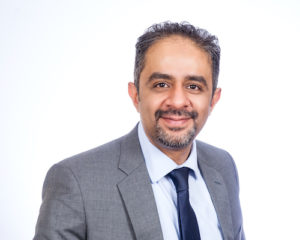
By: Faizal Bhana, Director – Middle East, Africa and India, Jersey Finance.

The warm response to Kenya’s first green bond earlier in the year was a breath of fresh air in a market that has struggled to spur investor interest over the last few years.
Property Developer Acorn Group successfully raised Ksh4.3 billion out of a targeted Ksh5 billion in January to finance sustainable and climate-resilient student accommodation through a debut green bond that was listed on the Nairobi Securities Exchange (NSE).
The strong investor response sent a powerful message to Kenya’s capital markets that there is investor appetite for investments that go beyond financial returns, by having a positive impact on the environment, the society and corporate governance – or simply put, ESG investing.
The traction behind sustainable finance is that companies that go beyond profits for their shareholders by looking at the wider interests of other stakeholders – including clients and employees, using the best environmental practices, embracing diversity, and by being transparent – will perform better in the longer term, compared to companies that are fixated on the next quarter’s earnings.
Today, investors are becoming more socially conscious and are looking at companies that reflect their values, be it on climate change or diversity and inclusion, and this is a growing trend globally.
With the public gaining awareness of the social and environmental problems facing the planet, sustainability issues have moved into the mainstream. There are plenty of news stories about the increase in extreme weather, plastic pollution and people living without food or basic sanitation. Sustainability is the intersection of the triple bottom line, known as the three Ps: people, planet, and profit.
Solving environmental and social problems is no longer the responsibility of non-governmental organizations and governments alone. The finance sector plays a crucial role in economic growth. It controls the flow of money and can direct capital to companies that understand and manage their sustainability issues well, or are developing business models to solve the global challenges that society faces.
The Global Sustainable Finance Alliance estimate that sustainable investments stood at US$30 trillion as at the end of 2018, representing a 34 per cent increase since 2016.
One area that has experienced particularly strong growth is impact investing, with the Global Impact Investing Network’s (GIIN) Annual Impact Investor Survey 2020 sizing the market at a staggering US$715bn. Just eight years ago it was almost 100 times smaller, valued at US$8bn.
This deep pool of funds presents a golden opportunity for Africa, which needs massive investments in social services, including health, housing, education, water and sanitation.
Sustainable finance can finance both public and private sector players that are solving these challenges.
A case in point is Kenya, which has shown that it has a wide variety of companies that are solving society’s problems through profitable and scalable models and, therefore making these firms magnets for investors searching for sustainable investment opportunities.
But for private and public sector players to benefit from these resources they will need access to global expertise so that they can become familiar with the rules and regulations that govern international finance, such as tax and transparency requirements.
Jersey’s forward-thinking international finance centre has a wealth of capabilities and resources that public and private bodies can leverage on, including a wide range of flexible structures, fund administration excellence, and unrivalled knowledge and expertise.
There are multiple Kenyan companies domiciled in Jersey, including Brighter Life, which managed to raise US$65 million in June and is expected to facilitate the provision of solar home systems and related solar products to d.light’s customers in Kenya. This is just one example of how Jersey is supporting sustainable finance in emerging markets.
Across Africa, taxpayers are also calling for more transparency and sustainability when it comes to government borrowing. This is becoming an area of concern in many countries due to the huge amounts of funds involved and the fact that financed projects are failing to deliver on their promises.
Jersey is proactive in assisting governments raise funds through sustainable finance. The jurisdiction has a Memorandum of Understanding (MoU) with the Kenyan government on financial cooperation.
Additionally, prospective investors will also have to show commitment towards ESG principles, through action and not just on paper, if they want to attract sustainable finance investors.
As governments, businesses, financial institutions and asset owners alike increasingly seek investments with purpose – something which is being driven largely by a growing awareness of social and environmental issues, as well as the rise of a new generation of millennial principals who are demanding higher standards of ESG in their portfolios – Jersey has the experience and expertise in place to support these sustainable finance needs.

At OWLS Software we offer 8000 insurance software features designed to automate any Insurers, UMAs or Brokers insurance admin.


